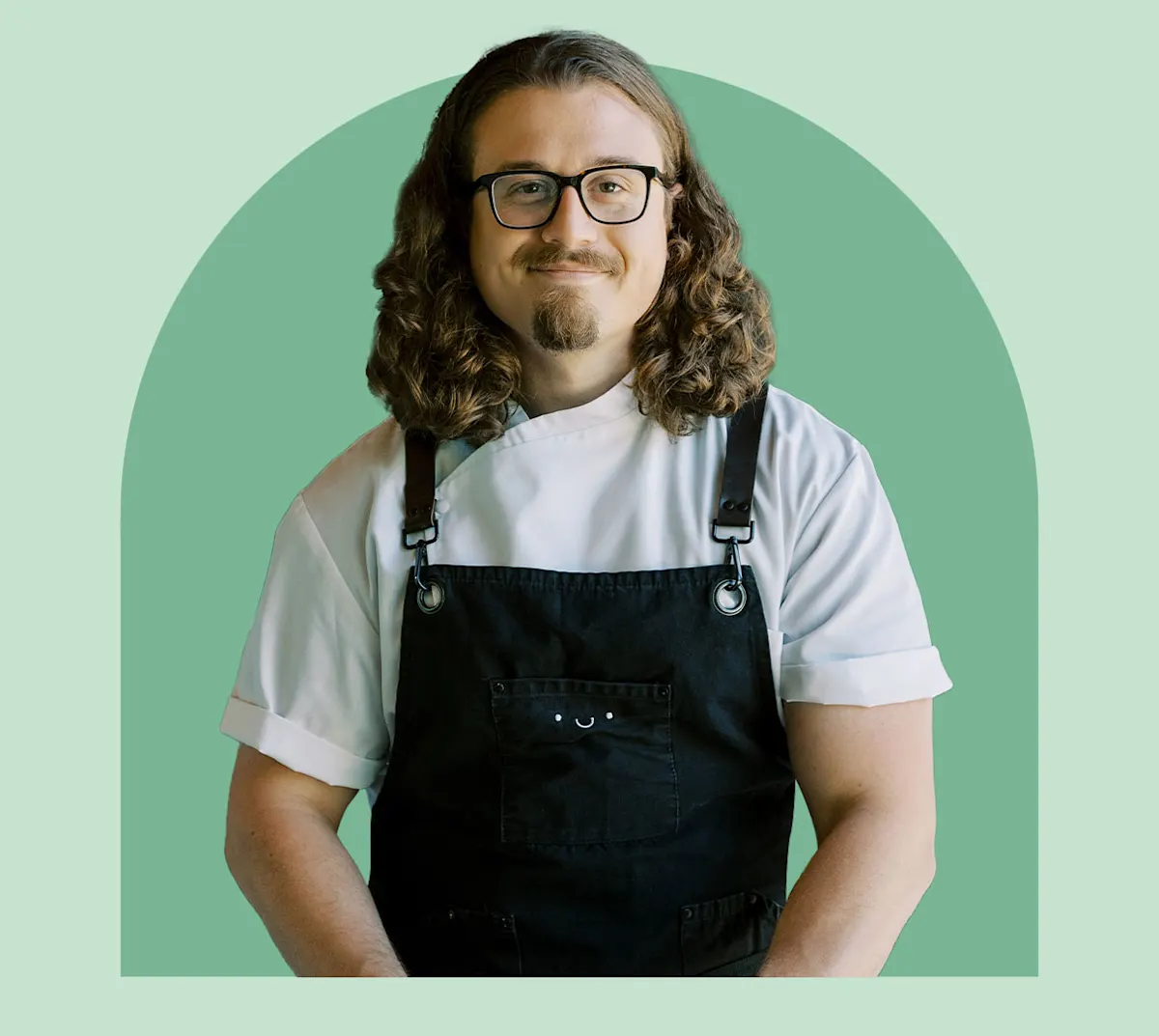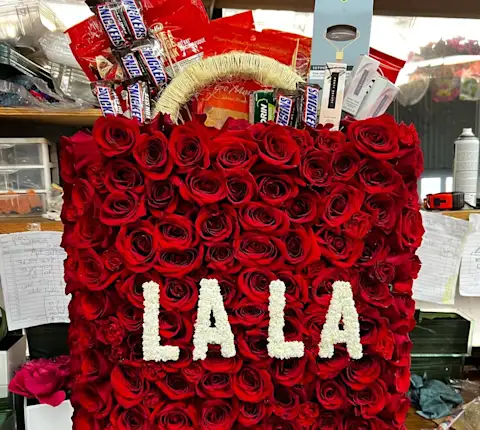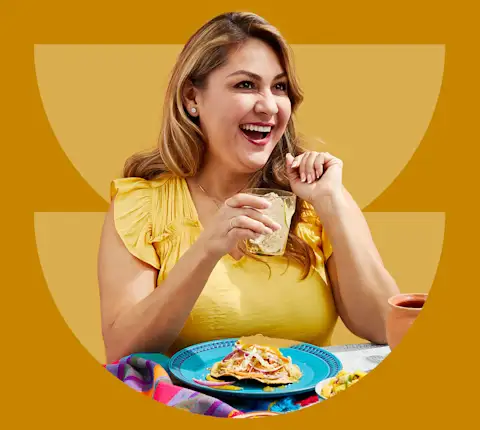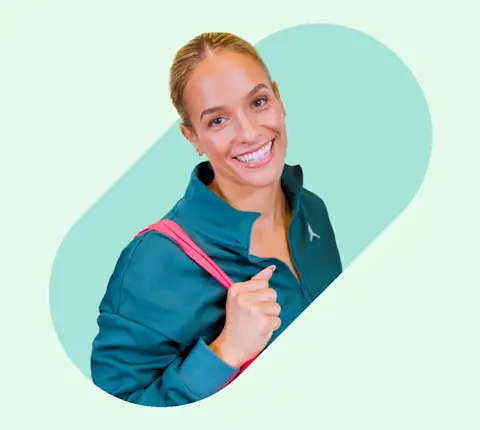Joshua Weissman can make it better. “It” being any restaurant dish you hold dearest to your heart, like Wendy’s Baconator. Think homemade milk bread buns, fresh ground beef, and whipped black garlic chive mayo. For his viral “But Better” series, the 28-year-old YouTube star and bestselling author goes to such great lengths to make gastronomically superior dishes that his videos begin to parody a Michelin-starred chef. Weissman has become instantly recognizable thanks to his self-aware smirk, a long wavy ponytail, and signature goatee.
Behind the camera, though, Weissman is grinding away 17-hour days, serious as hell about his dreams and ambitions, which began before his head could reach the kitchen countertop.
Order from Joshua Weissman's favorite restaurantsEncouraged by his mother and with the help of cookbooks and TV chefs (shout-out to Gordon Ramsay), Weissman began to teach himself to cook in his family’s Houston kitchen. He wrote his first recipes as a preteen, and by high school, his recipes were both on the family fridge (thanks, Mom) and in the local papers. He’s spoken about how he was bullied for his weight, lost 100 pounds on a Paleo-leaning diet in high school, and published his first cookbook, “The Slim Palate Paleo Cookbook,” when he was 17.
“I do better when I learn on my own,” Weissman says, leaning back in his production studio in Austin, Texas, where he now lives with his wife. While other kids crammed for the SAT and applied to college, Weissman grew his blog, dabbled in food styling, and sold food photos to Shutterstock. Weissman knew exactly where he was headed. After graduating high school, he backpacked around Europe with the money he’d saved before making his way into the kitchen of a French bistro. Staging (or, interning) there and eating with friends was his “miniature college,” he says, before he moved to Texas and worked as a line cook at restaurants in Houston and Austin.
This is the part of the story where you expect to hear, “and then he got burnt out of the low-paying, back-breaking restaurant work and decided to bet on YouTube.” But the thing is, Weissman loved restaurant work — the people, the education of the line. He’d grown his hair long and went from looking like “a little cherub” (his words) to a long-lost relative of Willie Nelson. He’d grown up. But he also felt like he’d “mastered the craft,” he said, and worried that the path ahead was just more of the same.
Where do you dream big, as a food obsessive? Food television seemed stale. “I felt like the people that were put in a place of power to decide what food shows should go out there were making horrible decisions,” he said. “They’ve never done dishwashing or bussing. They don't know anything about the industry that is run off the backs of people who are incredibly passionate, people who work incredibly hard.” He thought: I can do a better job than most of these supposed food hosts on TV.
He started to post cooking videos on YouTube, teaching himself how to use cameras and edit footage, while continuing to work relentless 70-hour weeks at his restaurant gig. A full year went by in which he slept about two hours a night. The weekly videos took two days to film and 8-10 hours to edit. But after a year and a half, the revenue he was making from YouTube finally surpassed his restaurant income. It was time to quit.
Soon, he’d transformed his channel into shows as polished as any on cable, attracting millions of views, and fans, along the way. He’s funny but educational, delivering instructional advice in what sounds like 2x speed narration, seasoning his serious tone with goofiness, a “whisky whisk” here and a “stirry stir” there.
As with any online personality, there are plenty of people who don’t like Weissman’s opinionated know-it-all chef persona, and you can hash it out with them on Reddit. But it seems that most fans are in on the joke. His YouTube success led to the release of two cookbooks, most recently, Texture Over Taste, which was an immediate bestseller. On the cover, he smirks in front of a Jenga tower of French fries while chefs toss food in the chaotic kitchen scene behind him.
“The cover of this book is the most accurate depiction of my brain,” he says, adding that, “non-restaurant folks think, Oh, you would never see that in a professional kitchen. They don’t act like that. But no, chefs are people who make jokes and are really funny and silly and dumb and have the most absurd humor of all time! They’re very emotional, sometimes too emotional.”
And while Weissman left the grueling work of restaurant kitchens, he seems to be putting just as much pressure on himself. With a team of nine, give or take three or four hires coming aboard this year, he’s on a steady publishing schedule that keeps him working 17-hour days. When we spoke at 10 a.m., he’d been up since 4:30 to get to the gym by 5. In the same way he calibrates the perfect bite of a Baconator, he’s fine-tuning himself, working with a trainer and counting his macros, testing the limits of how much sleep he really needs. The rest of us can sleep in. Weissman has a business to build.
“Food deserves to be in a higher place in entertainment, and I want to take it there,” he said on the Taste podcast. He’s currently mapping out a company that merges food, entertainment, and restaurants. “I’m building a restaurant group with a multitude of different styles of restaurants, from fast casual to fine dining to cafeteria style, and CPG companies… maybe we have a line of spices. There’s a lot of different irons in the fire,” he pauses.
“But I want to get rolling.”
Here, Joshua Weissman shares his go-to restaurants on DoorDash in select cities:
Order from Joshua Weissman's favorite restaurantsPHOTO CREDIT: Courtesy of Jenna McElroy





